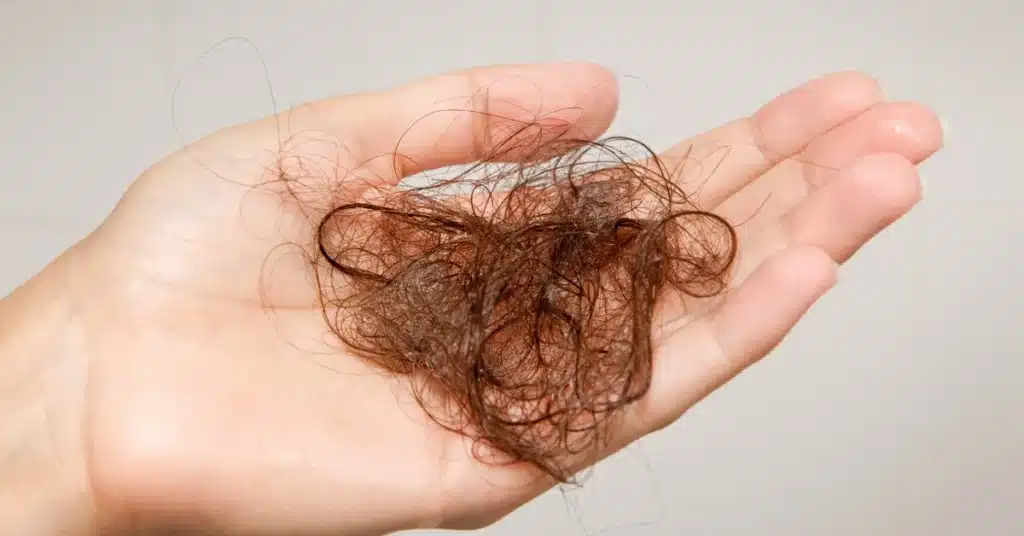Why Am I Getting Irregular Periods After Stopping Birth Control?
Stopping birth control can lead to side effects, including changes in your hair, skin, and menstrual cycle.
The primary cause of irregular periods when you stop using birth control is your body needing time to adapt to hormonal shifts.
This adaptation period generally spans one to three months for most people.
In this article, we will understand the reason for irregular periods after stopping birth control.
Additionally, we will learn about bodily changes one can expect when going off birth control pills.
How does birth control affect the menstrual cycle?
Certain types of birth control, such as pills, patches, and vaginal rings, contain hormones like Estrogen and Progestin.
These hormones can interrupt the natural hormone cycle that regulates menstruation, ovulation, and menstrual symptoms. l
When you experience a period while using birth control, particularly during the placebo week, it’s called ‘withdrawal bleeding.’
This occurs because hormone levels in the body decrease. It’s also common to have withdrawal bleeding shortly after discontinuing birth control.
What causes irregular periods after stopping birth control?

Irregular periods after discontinuing birth control can occur because your body needs time to adjust to the hormonal changes.
This adjustment period typically lasts for one to three months for most individuals.
Remember that you can become pregnant immediately after stopping birth control, so it’s wise to use alternative contraception methods if pregnancy prevention is your goal.
Consider taking a pregnancy test if your period is late or irregular after stopping birth control.
If you had irregular periods before starting birth control, those irregularities may persist even after you stop.
Factors like weight, exercise, or underlying conditions like Polycystic Ovary Syndrome (PCOS) can also contribute to irregular menstrual cycles.
PCOS is a hormonal disorder primarily caused by an excess of androgens in women, often referred to as male hormones. This hormonal imbalance results in irregular menstrual periods and can make conception more challenging. PCOS affects hormone regulation, impacting various aspects of a woman’s health, from her reproductive system to her metabolism.
Seek advice from your healthcare provider to identify the specific cause of menstrual irregularities.
In essence, irregular periods after discontinuing birth control are often a result of your body adapting to hormonal changes.
Still, it’s essential to consider other potential causes, including pregnancy, PCOS, or other health conditions.
When using hormonal birth control methods, such as pills or patches, it’s normal to experience side effects when you start or stop using them.
These methods typically contain a combination of Estrogen and Progestin, which work together to prevent ovulation, thicken cervical mucus, and regulate bleeding.
The above mentioned hormones can lead to side effects like acne, weight fluctuations, headaches, changes in menstrual bleeding, and mood swings.
If you find these side effects severe or if they persist beyond a few weeks after discontinuing birth control, consult a healthcare provider for guidance.
What happens when you stop using birth control?
Certain birth control methods utilize hormones like Estrogen, Progesterone, or both to prevent pregnancy.
When you discontinue hormonal birth control, your body no longer receives a regular supply of these hormones.
Apart from alterations in your menstrual cycle, these hormonal changes can also lead to various bodily changes.
Breasts
Many people experience breast tenderness before their menstrual period due to a surge in Progesterone, which stimulates milk glands.
Birth control can alleviate this tenderness, so discontinuing it may bring back breast sensitivity.
Hair

Hair loss related to hormones can indicate PCOS, characterized by hormonal imbalances involving Estrogen, Progesterone, and Androgen.
If you experienced this type of hair loss before starting birth control, discontinuing it might lead to hair restoration.
Sex drive
Research has shown that birth control pills can potentially lead to sexual difficulties, including:
- Difficulty becoming sexually aroused or maintaining arousal
- Difficulty reaching orgasm
- Experiencing pain during sexual intercourse
Skin
Many individuals use birth control as a remedy for acne, so discontinuing it may result in the reappearance of acne issues.
If you’re concerned about hormonal acne, consulting a dermatologist for alternative solutions involving changes in your skincare routine is a sensible step.
Weight
If you’ve heard that birth control causes weight gain, it’s important to note that this may not necessarily be the case.
Quitting birth control is unlikely to lead to weight loss or gain.
Research indicates that the birth control pill does not impact weight significantly.
Conclusion
When you stop using birth control, your body may experience some adjustments as it adapts to hormonal changes.
Irregular periods are common during this transition, typically lasting one to three months.
It’s essential to note that pregnancy can occur immediately after discontinuing birth control, so consider alternative contraception methods if needed.
If irregular periods persist or you had them before starting birth control, consult a healthcare provider to identify underlying causes like PCOS or other health conditions.
Additionally, discontinuing hormonal birth control may bring back breast tenderness, impact hair loss related to hormonal imbalances, and potentially affect your sex drive.
Remember that individual experiences may vary, and consult a healthcare provider for guidance if you have concerns about these changes.
Frequently Asked Questions
Is it normal to have a very irregular period after stopping birth control?
Yes, it’s normal to experience irregular periods after discontinuing birth control. This irregularity occurs as your body adjusts to hormonal changes. Typically, it lasts for one to three months, but it’s crucial to consider other factors, including pregnancy or underlying conditions like PCOS, if irregularities persist.
How long does it take for your period to regulate after stopping birth control?
It can take one to three months for your period to regulate after stopping birth control. During this time, your body needs to adapt to the hormonal changes. However, individual experiences may vary, and it’s important to consult a healthcare provider if irregularities persist.
What are the side effects of stopping the pill?
Discontinuing birth control pills may result in side effects like irregular periods, breast tenderness, hair changes (loss or regrowth), potential shifts in sex drive, skin changes (like acne reappearance), and no substantial weight gain or loss. Individual experiences may vary, so consulting a healthcare provider for guidance is advisable.
What are the main causes of irregular periods?
Irregular periods can result from various factors, including hormonal imbalances, stress, excessive exercise, weight fluctuations,PCOS, thyroid disorders, and certain medications. Pregnancy and Menopause can also affect menstrual regularity. Identifying the underlying cause is essential for effective management.
WowRx uses only high-quality sources while writing our articles. Please read our content information policy to know more about how we keep our content reliable and trustworthy.






